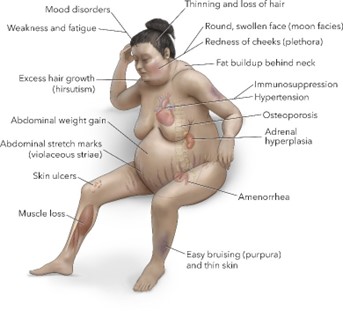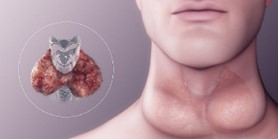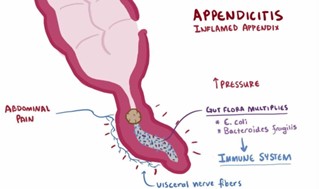A patient is being admited with a diagnosis of Cushing syndrome. Which findings will the nurse expect during the assessment?
Chronically low blood pressure
Bronzed appearance of the skin
Decreased axillary and pubic hair.
Pendulous Abdomen
The Correct Answer is D
Cushing syndrome is caused by excessive cortisol production by the adrenal glands, which can result in weight gain and redistribution of fat to the abdomen, giving it a characteristic rounded appearance.
The other options mentioned in the question are not typically associated with Cushing syndrome. Chronically low blood pressure is not typically seen in Cushing syndrome, as cortisol is a hormone that can raise blood pressure. A bronzed appearance of the skin is more commonly seen in conditions like Addison's disease, where there is a deficiency of cortisol. Decreased axillary and pubic hair is not a common finding in Cushing syndrome, although excessive hair growth (hirsutism) may occur due to the excess of androgens produced by the adrenal glands.

Nursing Test Bank
Naxlex Comprehensive Predictor Exams
Related Questions
Correct Answer is D
Explanation
Cushing syndrome is caused by excessive cortisol production by the adrenal glands, which can result in weight gain and redistribution of fat to the abdomen, giving it a characteristic rounded appearance.
The other options mentioned in the question are not typically associated with Cushing syndrome. Chronically low blood pressure is not typically seen in Cushing syndrome, as cortisol is a hormone that can raise blood pressure. A bronzed appearance of the skin is more commonly seen in conditions like Addison's disease, where there is a deficiency of cortisol. Decreased axillary and pubic hair is not a common finding in Cushing syndrome, although excessive hair growth (hirsutism) may occur due to the excess of androgens produced by the adrenal glands.

Correct Answer is D
Explanation
A decrease in the level of consciousness is a serious sign and could be an indication of worsening conditions. It is essential for the nurse to ensure that the patient's airway is open and clear, as a compromised airway can lead to hypoxia and a further decrease in consciousness. Therefore, maintaining a patent airway should be the nurse's priority action in this situation.
While monitoring blood pressure and restricting oral intake may be important interventions in certain situations, they are not the priority actions in this scenario. Administering SQ insulin may not be necessary for a patient with hypothyroidism and acute appendicitis.


Whether you are a student looking to ace your exams or a practicing nurse seeking to enhance your expertise , our nursing education contents will empower you with the confidence and competence to make a difference in the lives of patients and become a respected leader in the healthcare field.
Visit Naxlex, invest in your future and unlock endless possibilities with our unparalleled nursing education contents today
Report Wrong Answer on the Current Question
Do you disagree with the answer? If yes, what is your expected answer? Explain.
Kindly be descriptive with the issue you are facing.
